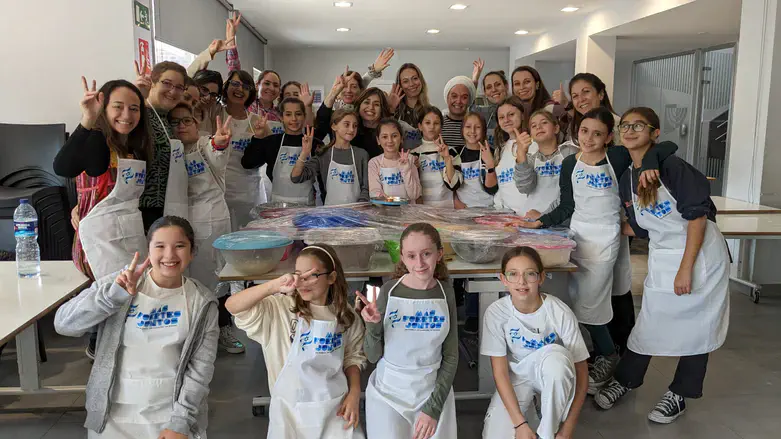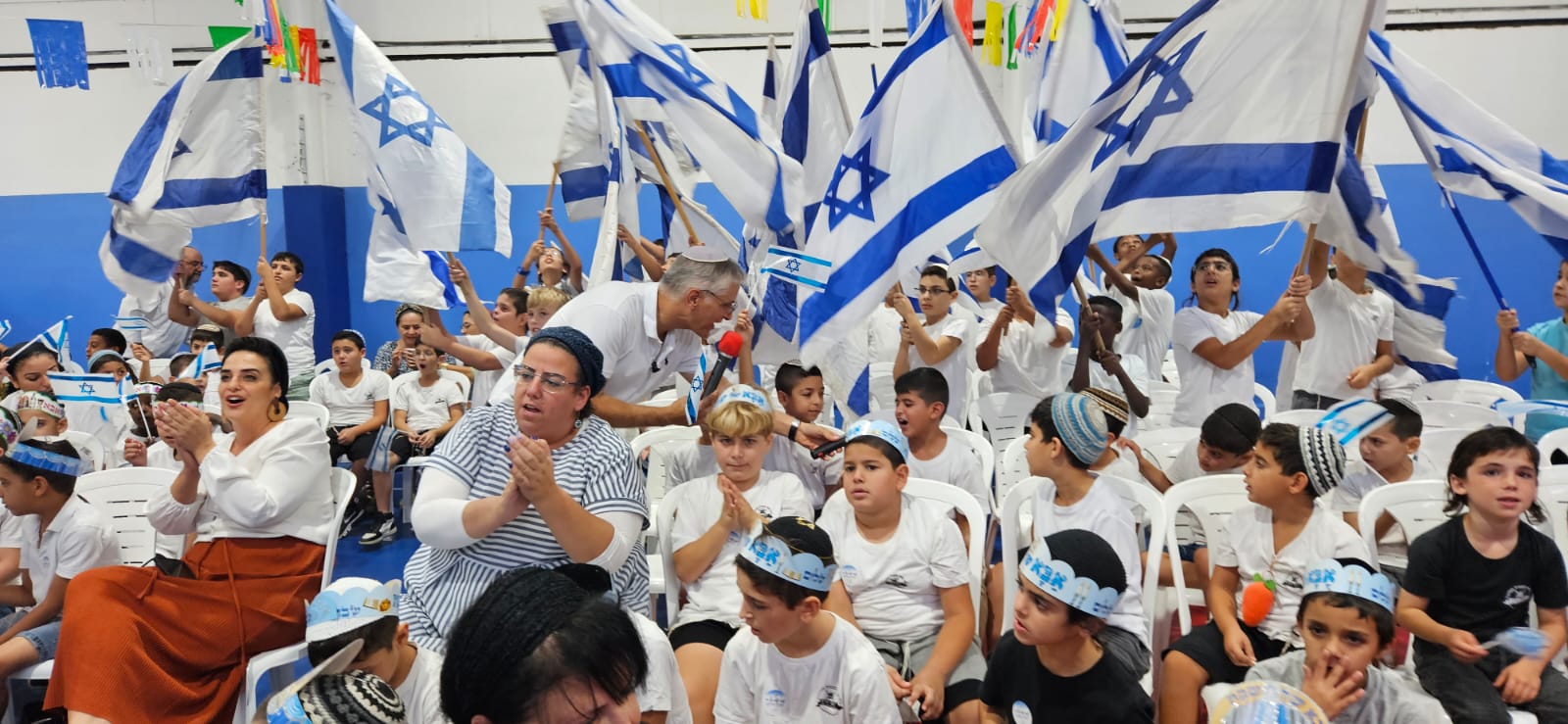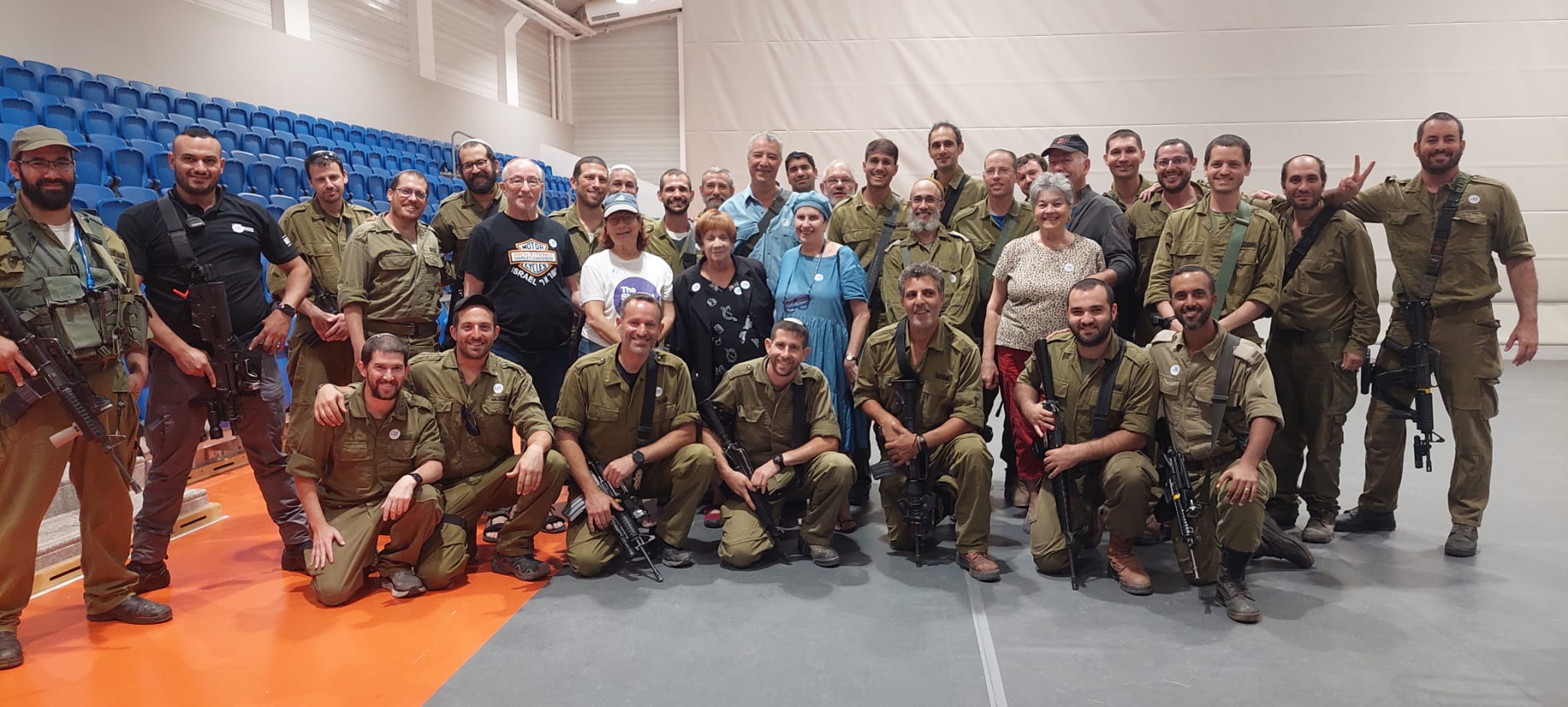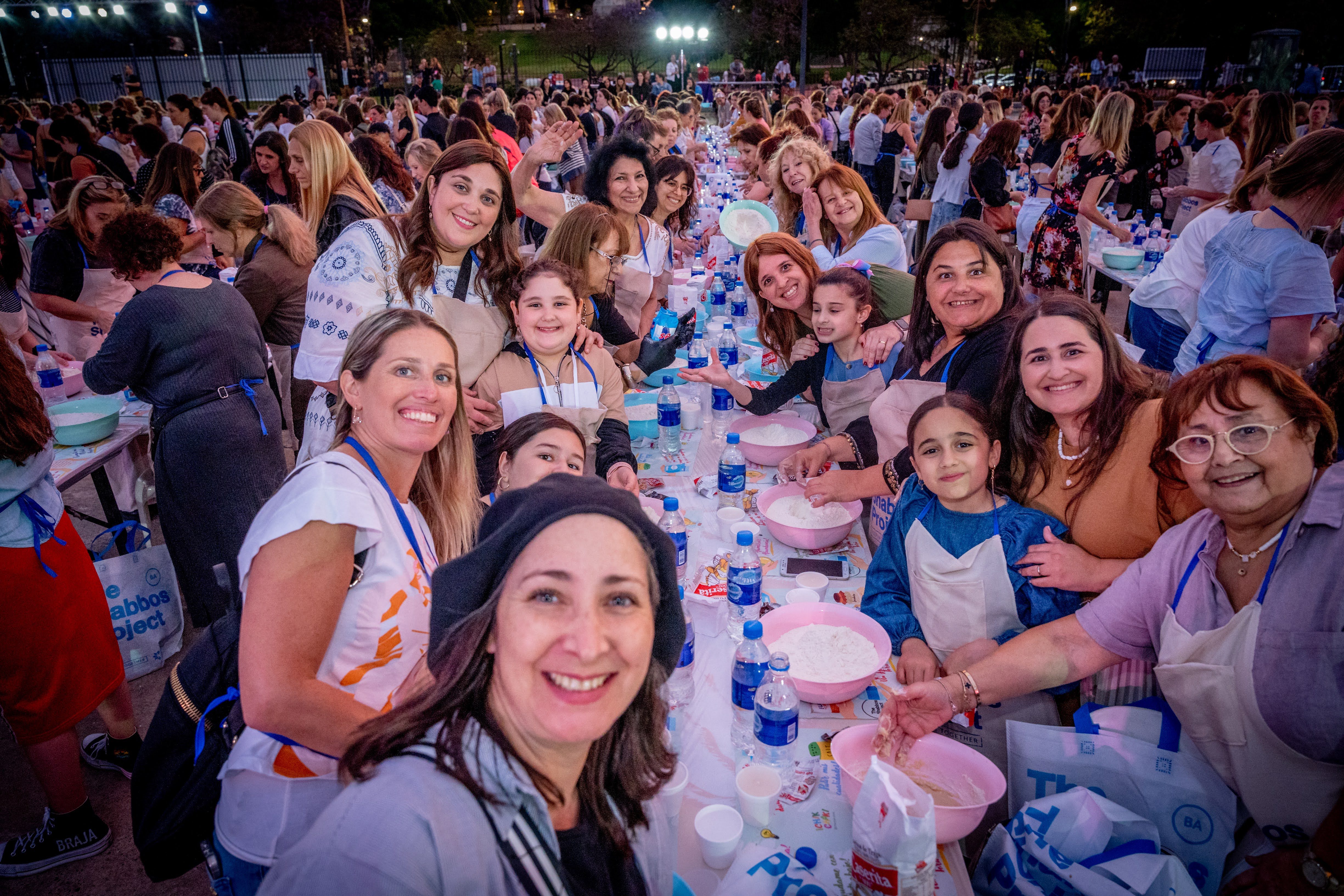
This year’s Shabbat Project, taking place on 15/16 November, comes at a historic moment in time, as Israel fights a war on multiple fronts following the brutal attack of October 7, and as Jewish communities around the world face a tide of antisemitism that hasn’t been seen in decades.
“Since October 7, Shabbat has emerged as a source of strength and comfort — a fortress of faith and family, a shining light of inspiration and meaning amidst the pain and uncertainty,” says Shabbat Project founder, South African Chief Rabbi Dr. Warren Goldstein, who has called this year’s event the most important since the project began in South Africa in 2013.
“Now, especially, the Shabbat Project is a chance for Jews everywhere — in Israel, the US, and throughout the world — to rally together, to unite around Shabbat, to stand proud and say, ‘This is who we are. We will not be defined by those who hate us, and with God’s help, we will not allow our enemies to defeat us.’”
Shabbat Project celebrations are once again happening in more than 1,500 cities and over 100 countries. Events include challah bakes, havdalah concerts, community dinners, student Shabbatons, festive prayer services, children’s activities, and learning programs— all coordinated by a team of thousands of city partners, alongside tens of thousands of volunteers on the ground.
In Israel the project is reaching more people than ever before. Ongoing partnerships with more than 100 municipalities, NGOs such as Zehut, will see this year’s project reach more than 800,000 Israelis across the religious and political spectrum, in more than 250 towns and cities.
One of the big innovations this year is to have a volunteer in each apartment building in Israel driving events, creating awareness and distributing Shabbat-themed educational materials and items among residents. Thanks to a high-profile social media campaign, more than 10,000 “building captains” have already been recruited, driving events for close to half a million residents, while a Shabbat picnic kit will be distributed to 6,500 families.
Around 40,000 high school students and 55,000 elementary school students, along with their families and teachers will be participating in special Shabbat meals and other events, while special Shabbat learning programs will reach more than 175,000 Israeli kids.
The mayor of Eilat addressed the Israel launch of the project. Last year, Eilat set the tone for the Shabbat Project in Israel, holding events even while absorbing 50,000 evacuees (the sum total of the population), and this year the coastal city will be going all-out with four open-invitation mass Shabbat dinners, among other city-wide events.
Hundreds of Jewish communities in North America are participating in the Shabbat Project. In Los Angeles, Aish will be helping non-observant community members host their own Shabbat meals while matching others up with host families. First-time participants Summerlin (Nevada) are organizing a Shabbaton for students and their families. And Savannah (Georgia) is hosting a city-wide Shabbat lunch in a central location, and arranging accommodation for those who live too far away to walk.
In Phoenix, families who sign up to keep a full 25-hour Shabbat — whether in their own home, as guests in another home or at a local hotel near a synagogue — will receive a $100 Amazon gift card towards Shabbat essentials. In New York, Chabad on Campus is running a massive Shabbaton for 1,700 students. And a Shabbat dinner in Palo Alto run by the Z3 project for Israel-Diaspora relations is expected to draw more than 1,200 people.
Meanwhile, San Diego is rolling out a “Shabbat shuk” with more than 30 local Jewish vendors providing an array of Shabbat-themed delicacies, art, and Judaica, among other offerings. NCSY Canada is organizing a community challah bake, Shabbat educational workshops and student accommodation. And a rabbi in Tampa Bay Florida will be hosting a Shabbaton for young families, and learning Rabbi Goldstein’s book, "Shabbat – A Day to Create Yourself," with a group of 12 boys from a local public school – one of more than 150 such learning groups happening across the US.
Across Europe hundreds of events are happening in cities such as Prague, where a guest rabbi and rebbetzin from Israel will oversee a full program including a challah bake, a kids concert, challahs distributed to elderly members of the community, a musical havdalah and a Shabbat workshop for bar mitzvah boys.
And a special international Shabbaton in Switzerland will bring together students from Paris, Lyon and Geneva, and will include a challah bake, Shabbat dinner, learning and activities throughout the day, and a post-Shabbat “melave malka” party.
In France, the focus is on youth, with Shabbatons and learning events organized at university campuses across the country, while hundreds of schools will be running challah bakes, Shabbat dinners/lunches, and educational programs for kids and their families.
Among dozens of events in Strasbourg involving every synagogue in the city, twenty young Jewish refugees from Ukraine will attend a Shabbaton along with local youth.
New cities participating in this year’s Shabbat Project include Casablanca (Morocco), Abidjan (Côte d’Ivoire) and Tahiti, a small island in the middle of south Pacific Ocean, which is organizing a gala seudah shlishit (third meal) to join their celebrations with Jews around the world.
Finally, in South Africa, where the Shabbat Project was birthed, the challah bake – featuring international celebrity chef and Aish CMO Jamie Geller (known for her bestselling cookbooks and viral cooking videos that have racked up more than a billion views) – is expected to draw more than 5,000 women.
Meanwhile, a community in Sandton, Johannesburg has booked out two hotels for local families to keep Shabbat together within walking distance of the synagogue. And a number of other synagogues in the Glenhazel area (Johannesburg’s “Jewish heartland”) are partnering on a campaign to invite hundreds of families unaccustomed to keeping Shabbat.
“Our objective this year, as in previous years, is simply to enable as many people as possible to keep Shabbat together,” says Rabbi Goldstein, “drawing people to the full, immersive 25-hour Shabbat experience.”
And we need it now more than ever.
“Over the past year, our deep Jewish instinct to seek out Shabbat in moments of difficulty and uncertainty has kicked in. There are countless inspiring stories of how Shabbat has held us, giving us the courage we need,” he said.
This year’s Shabbat Project launch video captures some of those stories: a hostage captured by Hamas and freed after 55 days in captivity; a Nova Festival survivor; a college student at Columbia University.
As Rabbi Goldstein puts it, “They and so many others have turned to Shabbat for hope and connection.”
More recently, the Shabbat Project released the first ever Shabbos “commercial,” The video has already reached more than 2.5 million people, spreading awareness and creating excitement in the build-up to what might be the biggest Shabbos Project yet.
“Let the word go forth that this year’s Shabbat Project will be a Shabbat of global Jewish unity,” says Rabbi Goldstein in closing.
“Let us unite in cities across the globe. Let us gather together in our homes and synagogues, in our streets and community centers. Let us join hands with family and friends and neighbors, with our brothers and sisters throughout the world — one people with one heart.
“We have the gift of Shabbat. Let’s keep it together.”



